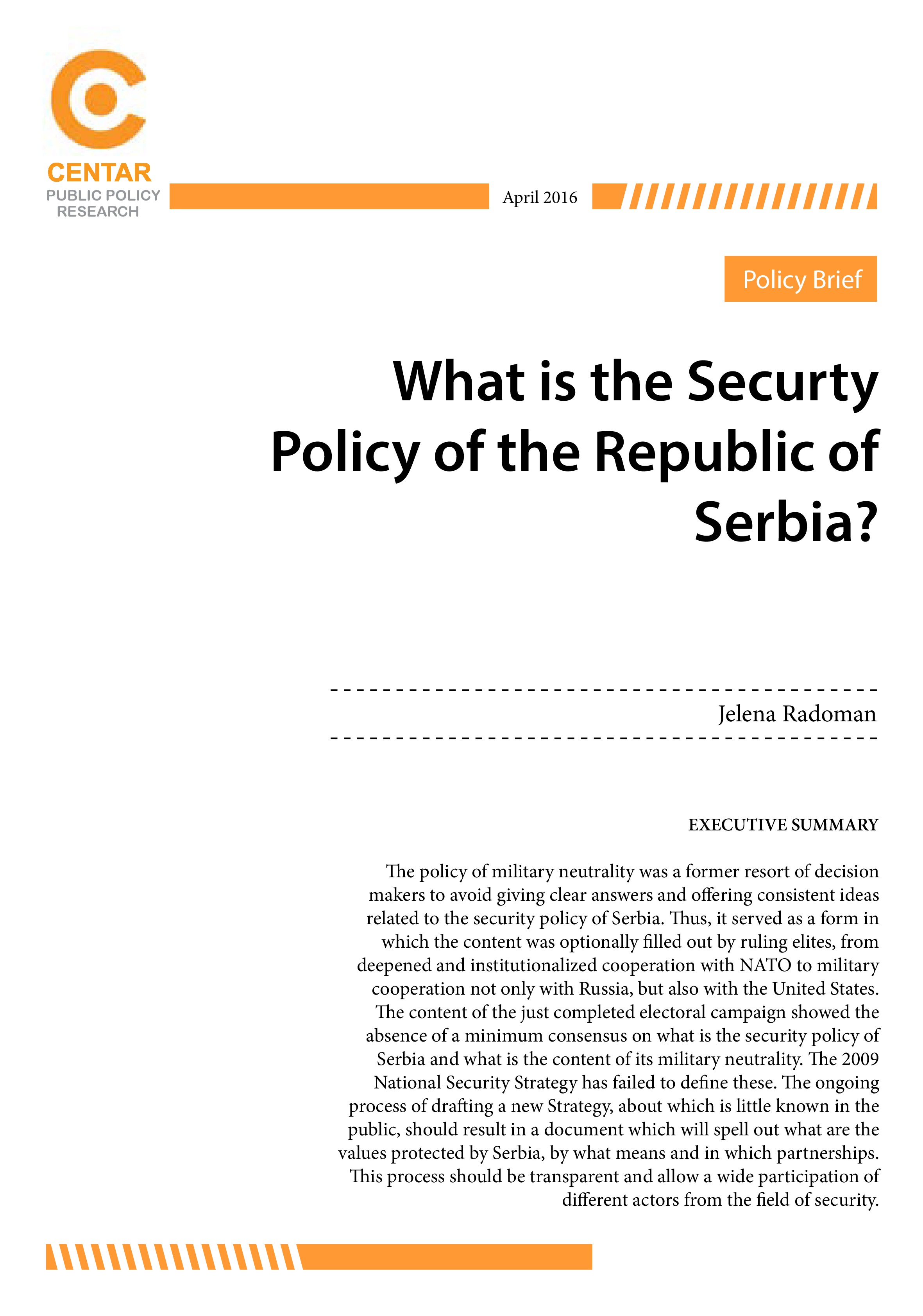Project: Organizational development grant from the Think Tank Fund29Jun2016
New Security Policy of Serbia Is Required
In the light of the upcoming NATO Summit in Warsaw (July 8-9) and new strategic document of the European Union - Global strategy of foreign and security policy, a conference "Western Balkans and NATO before and after the Warsaw Summit" was organized on June 28 by the Center for Euro-Atlantic Studies (CEAS) in Belgrade. The main topics of the conference were: current security situation in Europe and risks that European countries encouter, consequences of the recent referendum in the UK, as well as implications that ongoing events in Europe may have on the future euroatlantic integration of the Republic of Serbia, in particular, and the Western Balkans region, in general.
 As one of the main challenges that Serbia faces is (re)definition of its security policy in accordance with new security set-up in Europe. Participants agreed that the Serbian decision on military neutrality has not been confirmed at strategic level; therefore it may be differently understood and interepreted.
As one of the main challenges that Serbia faces is (re)definition of its security policy in accordance with new security set-up in Europe. Participants agreed that the Serbian decision on military neutrality has not been confirmed at strategic level; therefore it may be differently understood and interepreted.
NATO's Individual Partnership Action Plan (IPAP) signed with Serbia represents "the most comprehensive document in the field of defense;" and that is not only a formal cooperation framework is shown by the fact that the implementation of planned activities in the past year was at a very high level. As one of the most visible and most successful forms of cooperation between Serbia and NATO in the past, the Building Integrity (BI) Programme was singled out. It takes place through the process of assessing the risk of corruption in the Ministry of Defense of the Republic of Serbia and the process of adopting and implementing action plans aimed at its prevention and reduction.
Regarding capacity building in the field of crisis and emergency management, there has been made a slighest improvement. Although joining the EU Civil Protection Mechanism represents a positive step, not adopting the Law on reducing the risk from natural and other disasters and emergency management in due time (December 2015) and the disposal of completing the legal set-up in this field represent deadlock. Therefore, several key questions have not been addressed and solved, such as the status of the Russian-Serbian Humanitarian Center in Nis. The overall conclusion of the conference is that culture of dialogue must be enhanced and public debate on the security policy of Serbia must be launched.
The policy brief "What is the Security Policy of Serbia" by CENTRE's researcher Jelena Radoman explores these issues more in detail. It is available in Serbian under this link. Morevoer, CENTRE has been selected by the United Nations Development Programme in Serbia (UNDP) to produce the 2015 National Human Development Report (NHDR). It aims at exploring the most efficient ways of the crisis management of natural and other disasters. The report will be published in 2016; the CENTRE's team of experts is led by Branka Andjelkovic and dr Maja Kovac. Jelena Beslin, CENTRE's associate attended the CEAS conference.



